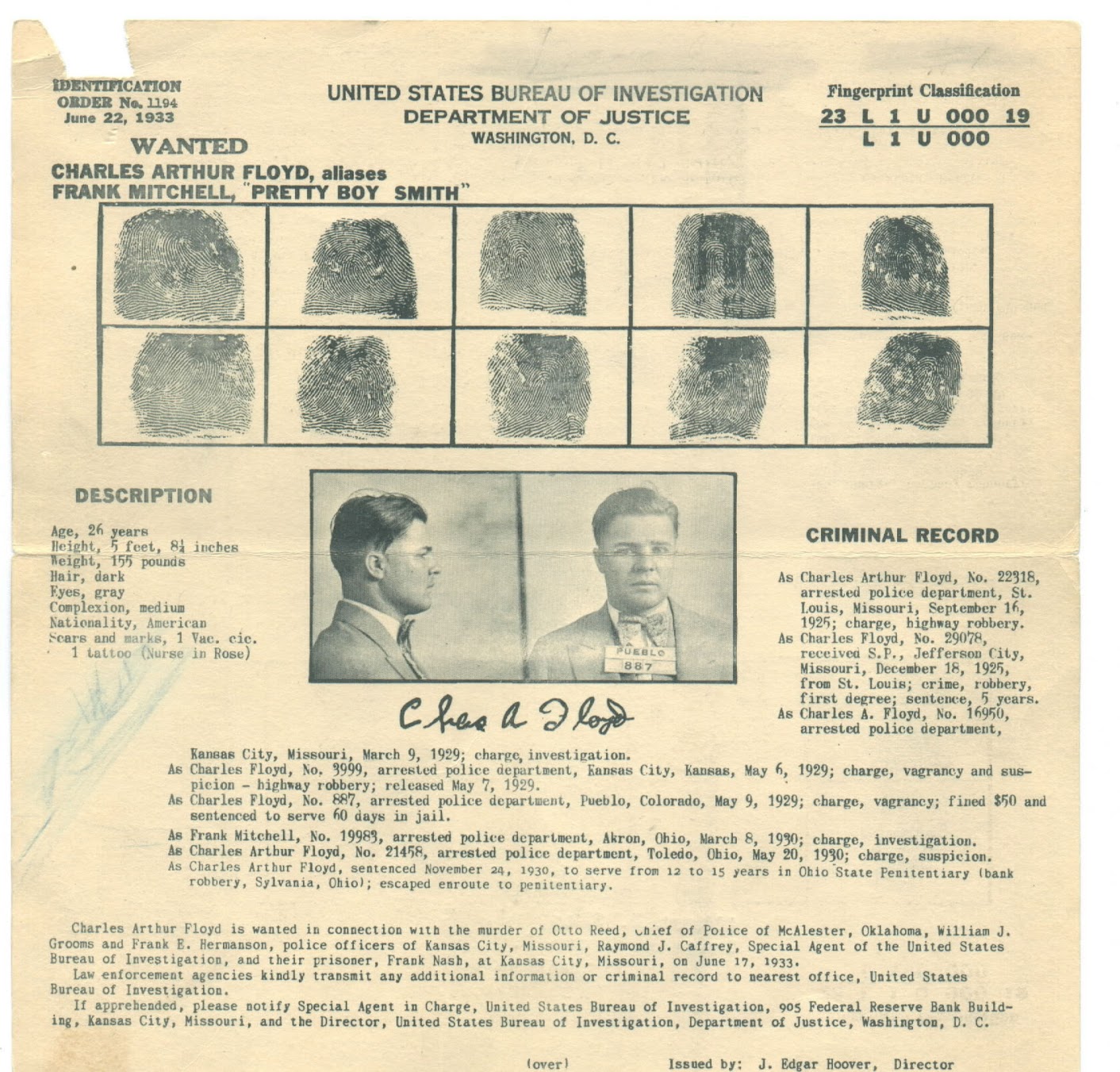In January of 1976 I was on the air (noon hour?) at KBOA in Kennett, MO, when the police scanner in the studio went nuts. Someone (dispatcher? patrolman?) was yelling that someone had robbed the bank and “took off in an airplane!”
I grabbed a cassette recorder and dashed out of the station, yelling for someone to go up and take over the live studio. I got to the small motor bank before the police and got a few minutes of audio with the teller who had been robbed.
Police showed almost immediately and made me get out. I was pumped because I had some good stuff. When I pulled the cassette from the recorder it was hopelessly wound around the roller and gears and shit. No way to salvage. I nearly wept. Instead, I hung around long enough to get a little more information and then headed back to the station where I did a quick ad lib report live and then started writing up the story.

The satellite image above tells you most of what you need to know. The pilot taxied the small plane out to A where pilots always stopped to let their engines warm up before take off. He slipped out and ran across the highway to the small motor bank (Bank of Kennett). This was a tiny little facility. Room for maybe two tellers and a little lobby (6×10?) separated by glass and a door. The way I remember the story, he asked the teller for a chair and she opened the door to hand him one (he said he was waiting for a friend). He stuck a gun in her face, got the cash ($24K) and boogied back across highway (about 100 yards) and took off into the sunset. He was also charged with “interstate flight.” The FBI arrested 39 year old Dennis R. Holmes a few weeks later in Phoenix.
According to a story in the St. Louis Post-Dispatch (PDF), Joseph Appleyard, chief pilot at Dolphin Aviation in Sarasota, taught Holmes to fly a few months earlier. “He didn’t see like my average bank robber,” Appleyard said. Holmes rented the plane (in Sarasota) on the Thursday before the robbery, flew to Kennett on Saturday.
The plane was tracked on radar by the nearby Air Force base in Blytheville, AR, but lost him when it put it on the deck and disappeared. He had a range of about 700 miles.
Mr. Holmes was also arrested for holding up a bank in Arcata, CA in February (PDF). He fled in a car but quickly transferred to a small plane. He was also a suspect in a $55K stickup the previous October in Michigan. In that one the robber held up the bank just as the high school homecoming parade was about to begin, and he melted into the crowd.
If you’re out there, Dennis… if you’re reading this… how about an interview to make up for the one that got away?


